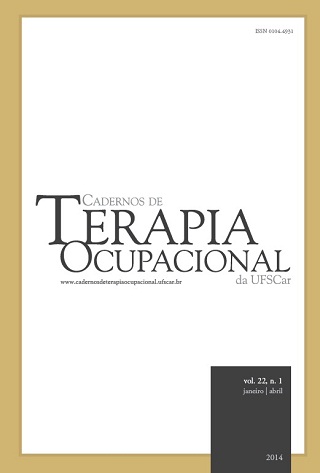Editorial
Resumo
When I was asked if I would write an editorial about professional journals and databases, I went to the dictionary to look up the exact meaning of ‘editorial’. It means a writing of opinions based on a topic. As I have 52 years of occupational therapy experience as a clinician, an educator and developer of OTDBASE, I have opinions based on my experience.
The development of OTDBASE came from my own experience and needs. Initially, as a student, I learned from my teachers’ lectures and medical textbooks, with rare references to our professional journal, the Canadian Journal of Occupational Therapy (CJOT). While working in a relatively isolated area of western Canada, I managed to have access to both CJOT and the American Journal of Occupational Therapy (AJOT), at that time considered
to be the ‘best’ occupational therapy journal. Ten years later, while doing graduate work at the University of British Columbia, I spent hundreds of hours researching the history of the development of occupational therapy in Canada. Because this was the pre‑computer and pre‑database era, those hours were spent looking for information that no one could tell me if it even existed.
I began teaching occupational therapy in 1971, and was very aware that students still had to spend hundreds of hours in the library looking for information they hoped existed. In the 1970’s, personal computers became available to libraries and individuals. By the time I had my third personal computer and learned a little about what a database was, it occurred to me that perhaps this machine and I could create a special database program which could shorten the time needed to find wanted occupational therapy journal articles.
Rather than ‘re‑inventing the wheel’, I consulted with the university librarian to see what databases already existed that contained occupational therapy journals. We looked
for 8 of the most available occupational therapy journals and found them in 42 different databases, but there was no one database that contained all 8 journals. I felt then that
the creation of a database containing only occupational therapy journals would fill a need, not only for clinicians and educators, but especially for students who could find
out quickly if there were (or, even more importantly, were not) journal articles available on any occupational therapy topic.
The creation of OTDBASE in 1986 required me to type in thousands of abstracts as scanners were in their preliminary stage of development. The development of personal computer scanners in the early ‘90s made it easier to increase the number of journals and their abstracts in OTDBASE.
Occupational therapy journals play a vital role in the development of our profession. They reflect the interests of a community, allow communication within that community,
stimulate new thinking, challenge practice and advance professional knowledge. Reading journals for inclusion in OTDBASE, especially relatively new journals from newly developing occupational therapy countries, tended to show me that there was a certain anxiety about creating what is felt to be a new profession. On the other hand, journals from countries with well‑developed occupational therapy professions show a gradual development over the years from communication and descriptive content to the development of theory, research and practice.
Because I was in contact with a number of countries with newly developing occupational therapy profession, I wondered, if asked, which existing journals I could recommend as being most helpful to their professional development. I could only answer that question if I examined which occupational therapy journals were most referenced in other occupational therapy journals. My 2006 and 2007 personal research findings that the three journals most referenced by others, and thus in my opinion professionally valued, were the American Journal of Occupational Therapy, the Occupational Therapy Journal of Research: Occupation, Participation and Health, and the Canadian Journal of Occupational Therapy. These finding were not a great surprise to me as the United States and Canada had the longest history of the development of theory, models of practice and research related to the development of occupational therapy as a profession.
Forty years ago, long before I was asked to provide an editorial opinion piece for the Cadernos de Terapia Ocupacional da UFSCar, from Brazil, I express my opinion on the necessity of encouraging continuing education if our profession was ever to grow and develop as an independent and valued profession. Over the many years since then it has become very evident to me that professional journals are one of the major keystones to that continuing education and professional development.
Marilyn Conibear
Associate Professor, Occupational Therapy, The University of Western Ontario,
1971-1990
Professor Emeritus, Occupational Therapy, The University of Western Ontario
Developer and owner, OTDBASE, 1985 to the present


